Sarita Aggarwal Solutions for Exercise 1: REVIEW QUESTIONS
Sarita Aggarwal Biology Solutions for Exercise - Sarita Aggarwal Solutions for Exercise 1: REVIEW QUESTIONS
Attempt the practice questions from Exercise 1: REVIEW QUESTIONS with hints and solutions to strengthen your understanding. ICSE Biology Book 2 for Class 10 solutions are prepared by Experienced Embibe Experts.
Questions from Sarita Aggarwal Solutions for Exercise 1: REVIEW QUESTIONS with Hints & Solutions
Give the name of two substances that diffuse out of the foetus into the placenta.
Name the hollow pear-shaped muscular organ where the embryo develops.
Menarche is the stoppage of menstruation.
The diagram alongside refers to the structure of human sperm:
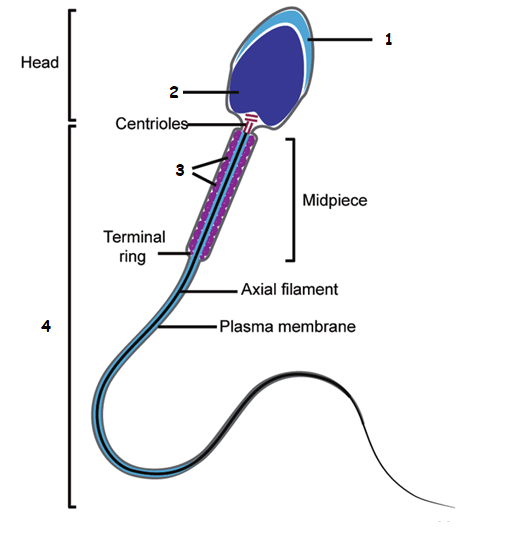
(i) Label the part .
(ii) What are the number of chromosomes present in the nucleus of the human sperm ?
(iii) State the functions of part .
(iv) Where is sperm produced in man?
The figure represents the female system of a mammal. Study the diagram and answer the questions that follow:
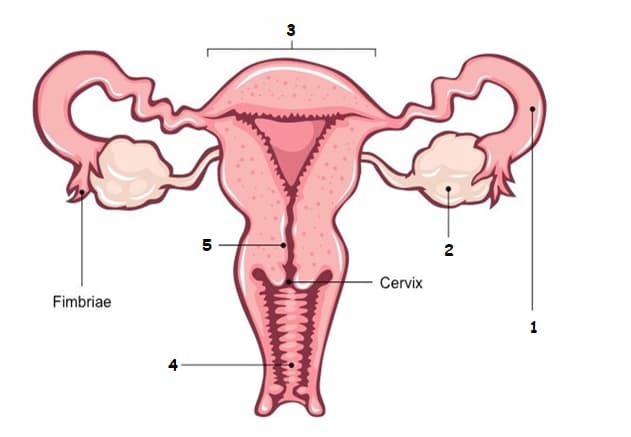
(i) Label the parts
(ii) Where does fertilization take place?
(iii) Name the structure where ovum is implanted.
The diagram shown is the lateral section of a testis of man. Study it carefully and answer the questions that follow:
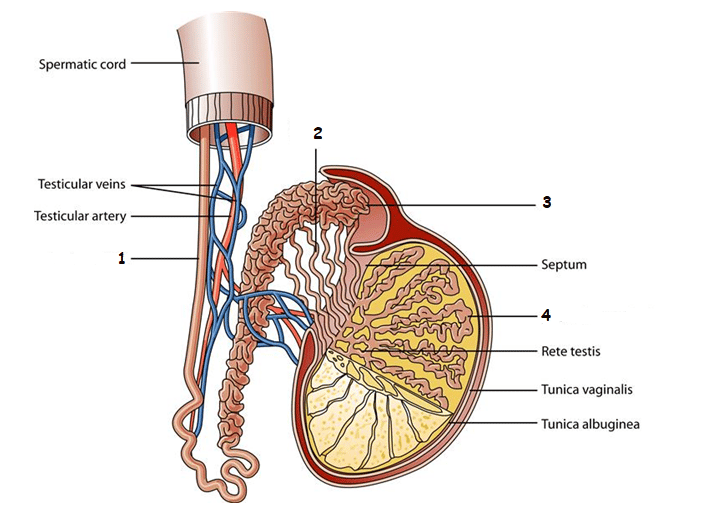
(i) Label the parts of the diagram.
(ii) State the functions of the parts labelled and .
(iii) Draw a labelled diagram of a sperm.
This is a diagrammatic representation of the ventral sectional view of the female reproductive system :
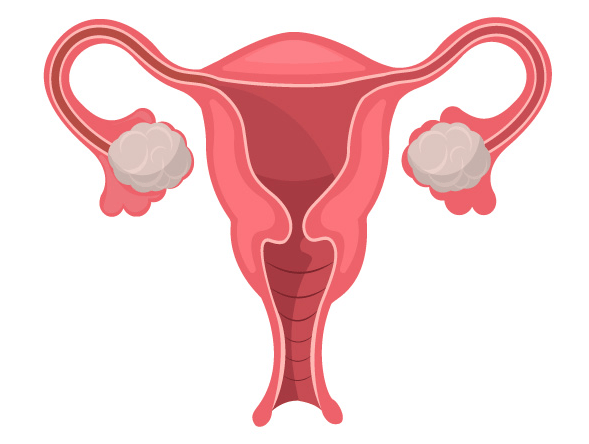
(i) Redraw the same on your answer sheet and then fill in and label the following
Parts:
(1) Right ovary
(2) Vagina
(3) Placenta
(4) Cervix
(5) Amnion
(6) Oviductal funnel.
(ii) State the function of the :
(1) Placenta; (2) Amniotic fluid.
(iii) Using the symbol 'X' indicate the region in the diagram where fertilization occurs.
The diagram given alongside is that of a developing human foetus in the womb. Study the same and then answer the questions that follow:
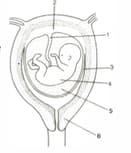
(i) Name the parts '1' to '6' indicated by guidelines.
(ii) What term is given to the period of development of the foetus in the womb?
(iii) How many days does the foetus take to be fully developed?
(iv) Mention one function of the part labelled '2'.
(v) What is the function of the part marked '5'?
